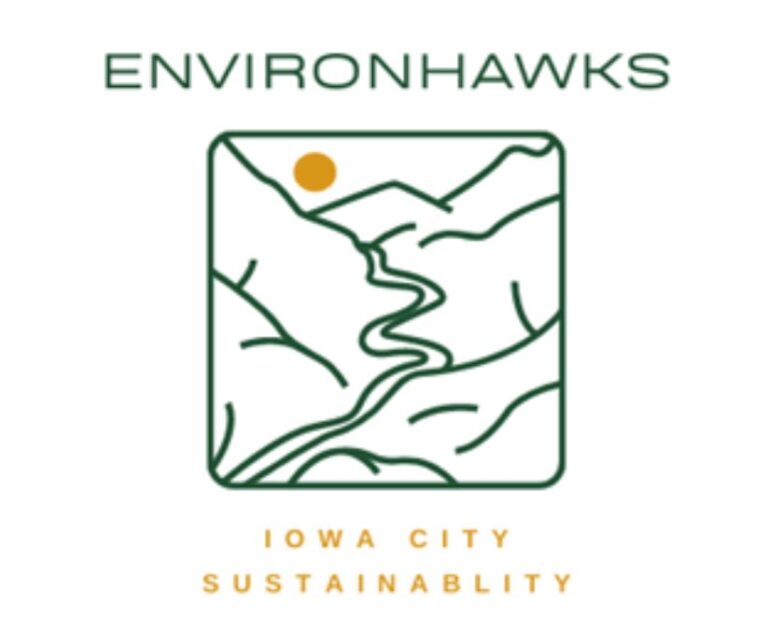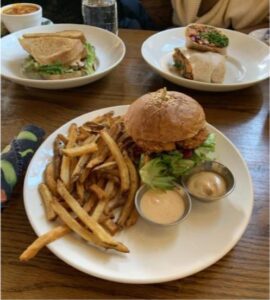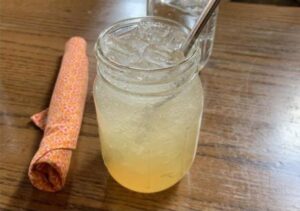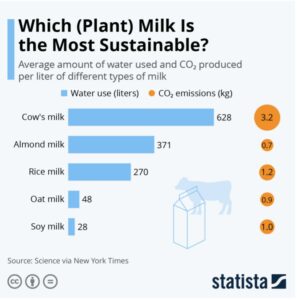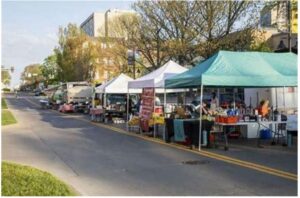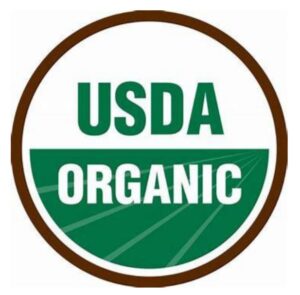Author: Ashton Knatz

Spring break is almost here! With the arrival of spring comes a fresh start and new beginnings. For some people, this might mean working on spring cleaning, healthier habits, or an overhaul of their wardrobe. Clearing out your wardrobe might encourage you to purchase new items to fill the vacant spaces, and it’s good to understand the possible implications of your clothing purchases, especially if they come from retailers like SHEIN, Forever 21, and ROMWE. These
retailers are notorious for producing cheaply-made clothing that can come from questionable sources, which are the hallmarks of the fast fashion industry.
Put simply, fast fashion is a term used to describe low-quality and inexpensive clothing that are mass-produced and cycled in and out of markets quickly to meet the demands of changing trends. The fashion industry has seen a major overhaul over the past two to three decades, which has seen a more demanding consumption of what is considered “new” and “trendy,” and a rejection of what is considered “old” and “outdated.2” With the emergence of social media
platforms over the past couple of decades, trends are cycling through at faster rates than ever before. People are keeping their eyes on celebrities and influencers to see which new skirt to buy and which pair of jeans to trash. Influencers have taken to social media to promote their clothes from fast fashion retailers like SHEIN, which reaches millions of their followers and influences their purchases. SHEIN has become one of the most notorious retailers in recent years, and I’m going to discuss them in further detail.

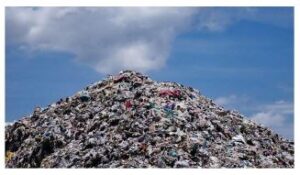
SHEIN (pronounced she-in) is a Chinese online fast fashion retailer that has become well-known for its remarkably low prices and wide variety of clothing. One tab on their website concerns social responsibility and their initiatives they are undertaking, and one of these is environmental sustainability. According to this section of their website, SHEIN claims to have invested in costlier thermal digital transfer and digital direct printing technologies in order to limit excess
water use during production [1], but these statements are vague and do not offer any transparency. In addition, low-quality clothes are often made with synthetic materials, which are derived from fossil fuels. In the United States, 85% of our textiles end up in landfills, and since most of these textiles are made from synthetic materials, they do not degrade on a human time scale, which means they rapidly fill up landfills and create immense amounts of municipal waste [2]. Fashion is an interesting matter of debate because fast fashion practices contribute to not only environmental issues like increased waste, but also social issues. Many giant retailers still utilize sweatshop labor in certain countries, which often do not provide safe working conditions and ample pay for their workers, which is a human rights issue [3].
The intersection of environmental and social issues perpetuated by fast fashion retailers is highly problematic. The domination of the fast fashion industry in the United States has led to problems, but there is hope with the emergence of more sustainable brands that take a “slow” fashion approach. In order to help combat the issues within the fast fashion industry, I would highly encourage you to limit your purchases from retailers like SHEIN. I understand that some
people might need to purchase a few items from affordable retailers from time to time, and this is acceptable. However, if you are looking to change your wardrobe on a larger scale, I would encourage you to pursue sustainable shopping, such as thrifting or purchasing clothes from up-cyclers, such as ThredUp. This is a great way for you to make a difference on an individual level.
Image Source: https://www.resellerratings.com/store/ThredUP
Looking ahead to the rest of March, this blog will feature posts with tips on how to build a sustainable wardrobe, as well as an Iowa City small business feature. As always, if you have any questions about the content of this post, please feel free to leave a comment. Thank you so much for reading!
Research Bibliography:
[1]Sustainability & Social Impact | SHEIN USA. (n.d.). SHEIN. Retrieved March 3, 2022, from
https://us.shein.com/sustainability-social-impact-a-1183.html
[2]Schlossberg, T. (2019, September 3). How Fast Fashion Is Destroying the Planet. The New
York Times. Retrieved March 4, 2022, from
https://www.nytimes.com/2019/09/03/books/review/how-fast-fashion-is-destroying-the-planet.ht
ml
[3]Kozlowski, A., Bardecki, M., & Searcy, C. (2012). Environmental Impacts in the Fashion
Industry: A Life-cycle and Stakeholder Framework. The Journal of Corporate Citizenship, 45,
17–36. http://www.jstor.org/stable/jcorpciti.45.17
Please note that I took the “Hello March!” image and the SHEIN logo from free image
databases.
